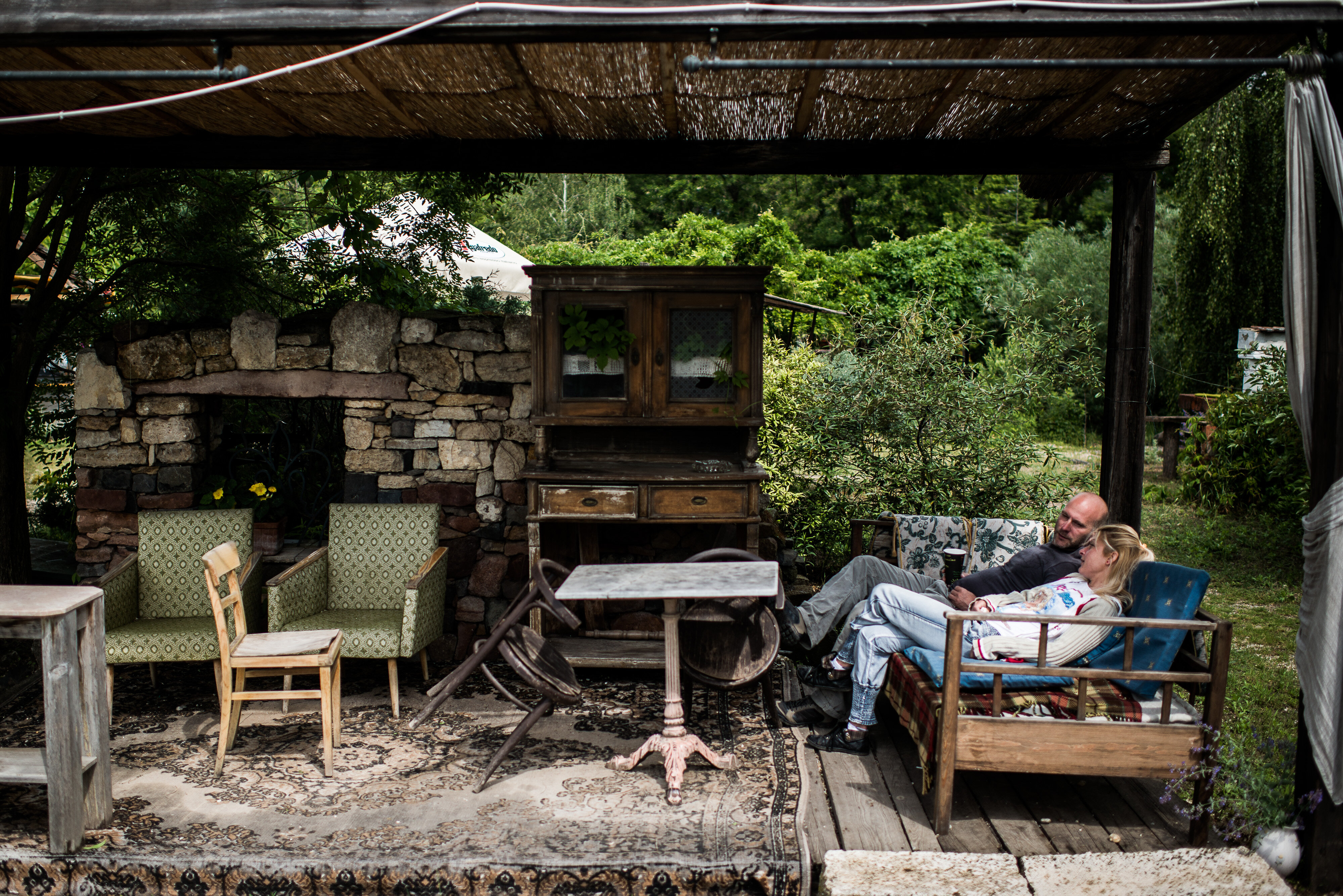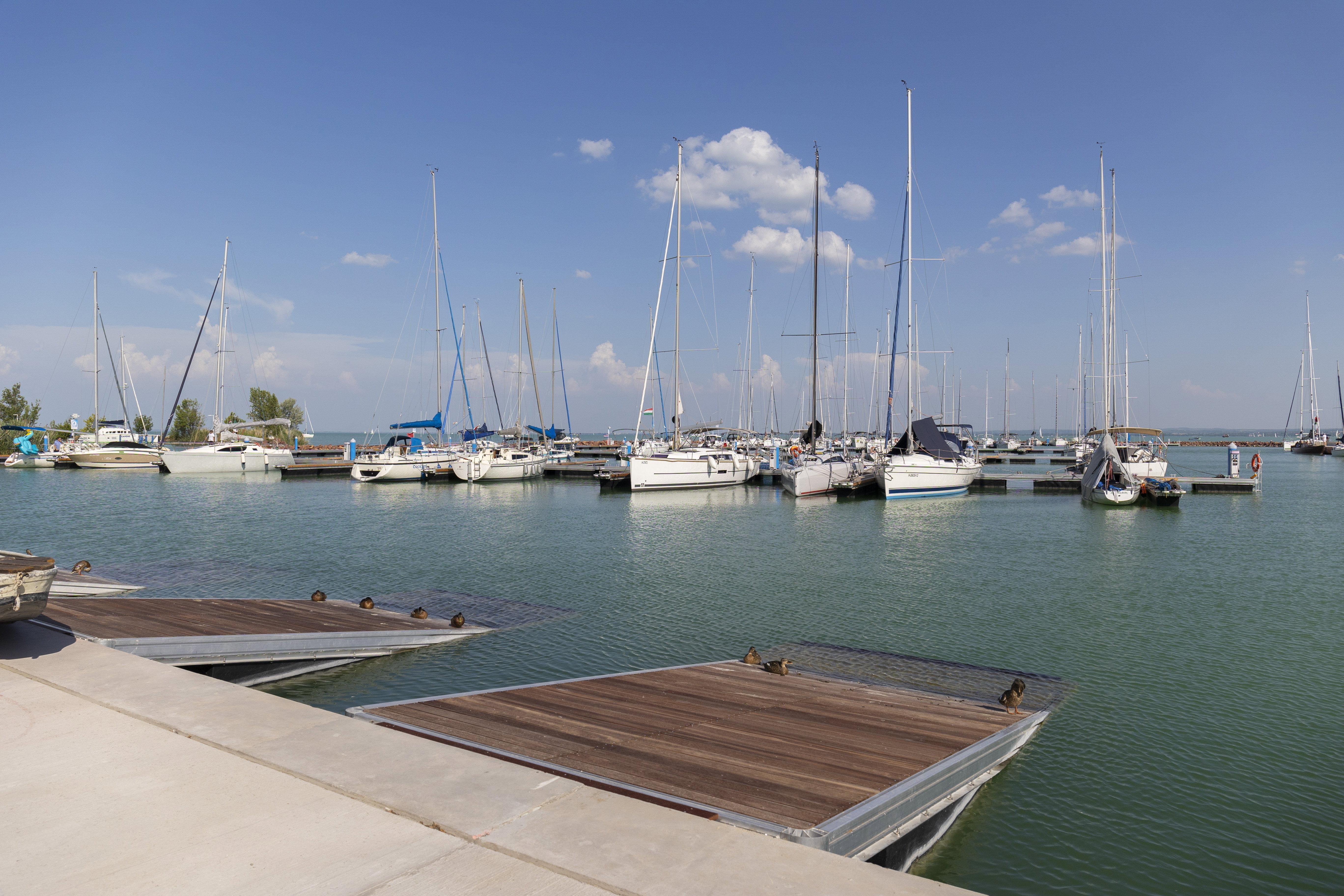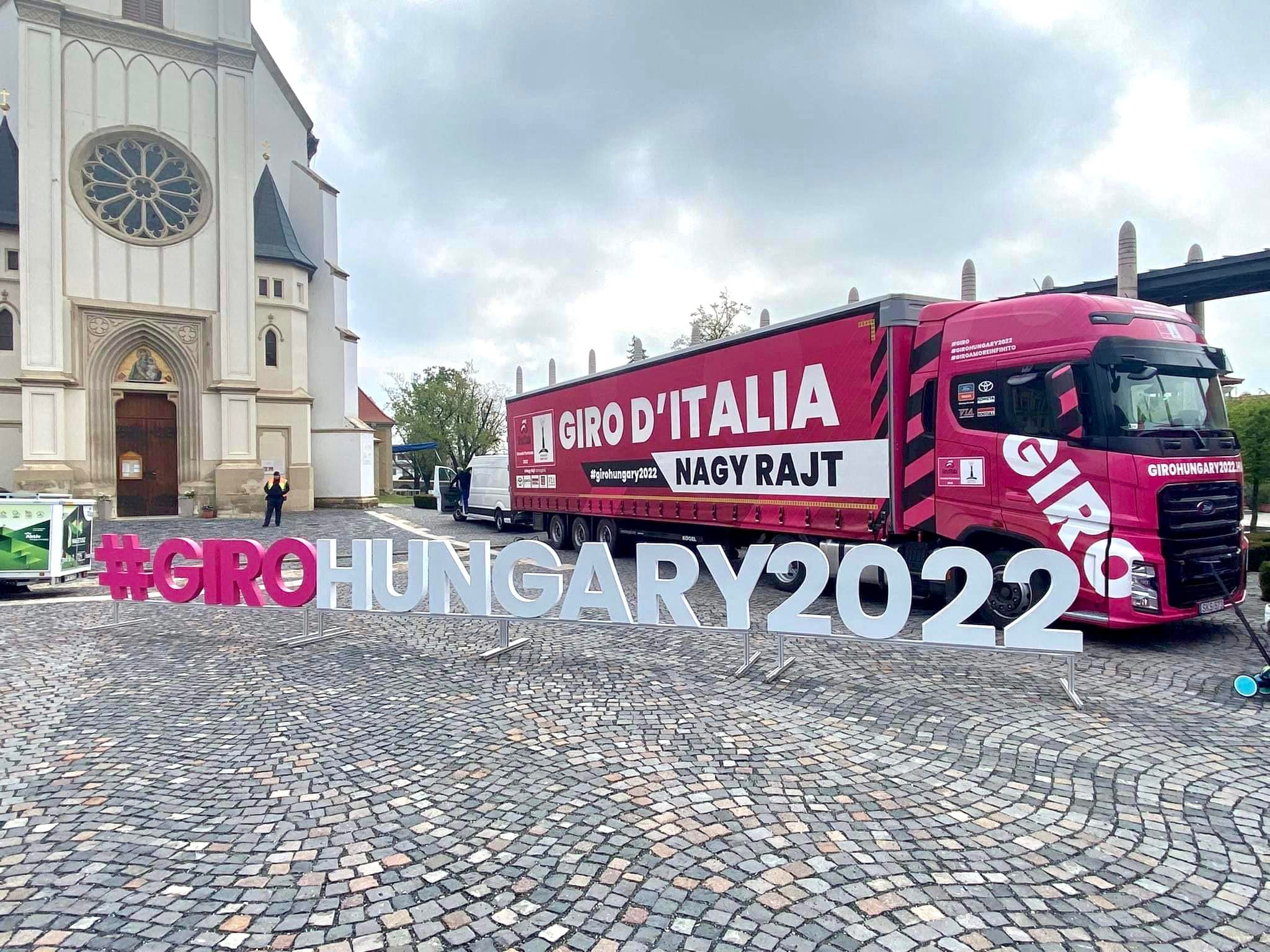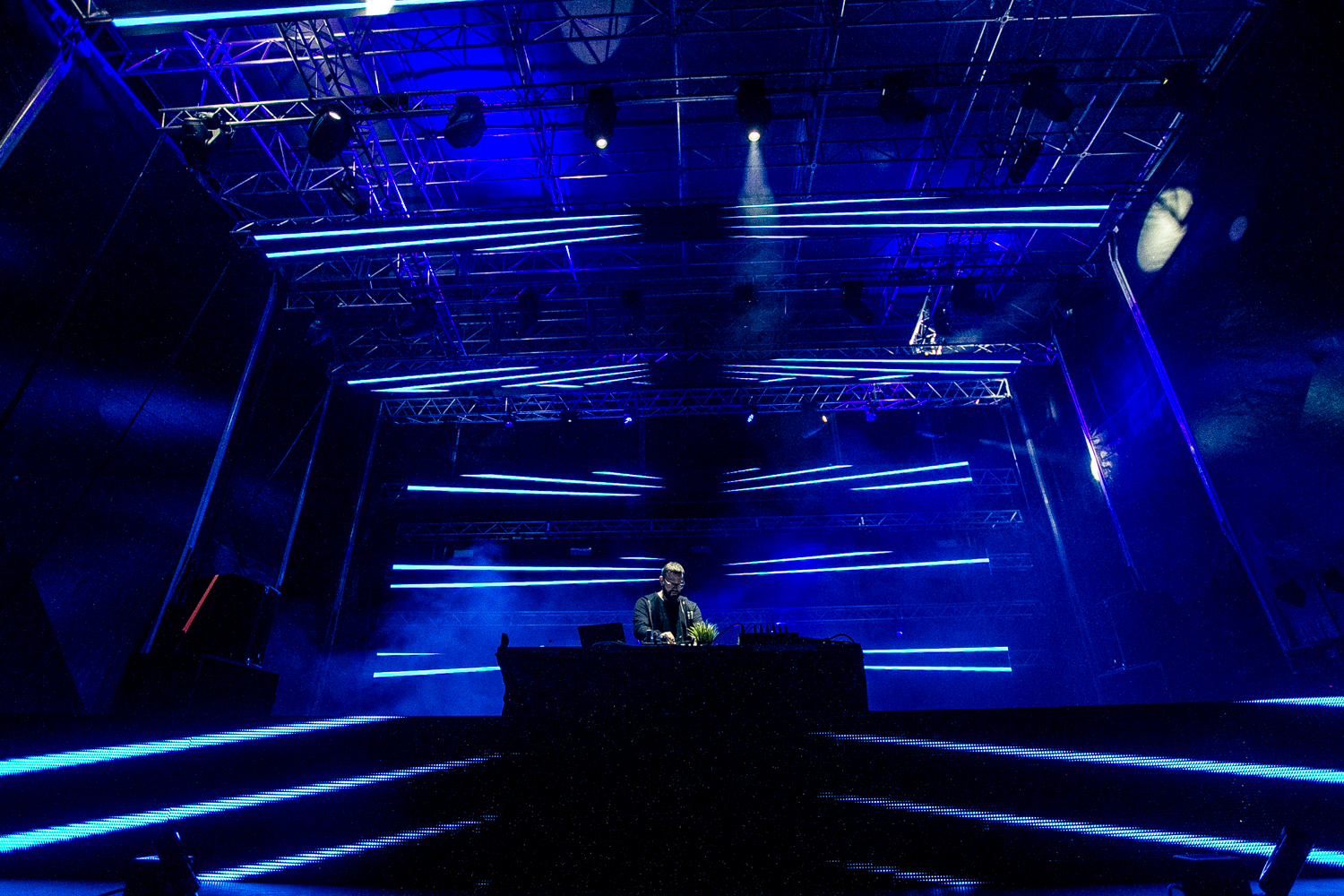The Liliomkert piac (Liliomkert Marketplace) in Káptalantóti is the most famous marketplace in the area of Lake Balaton. The market is open every Sunday, so weekenders from Budapest are coming to Liliomkert to buy bread or goat cheese. In many cases, those on the other side of the counter gave up their jobs in the capital to come here and sell cheese, cereal germ or healthy organic food. Weirdoes offering bioelixirs and other peculiarities make sure you'll feel as if you visited a bazaar. Ákos Stiller took his camera and visited Liliomkert: the photos and the texts are both his.
Imre Tóth pulls out one langalló (a dish similar to Italian focaccia, but with completely different toppings) after another from the oven. 'You want to know the secret? There are no chemicals in our products, and I always put fruitwood on the fire as well. It gives a special flavour,' he tells us, while he is cutting the slices.
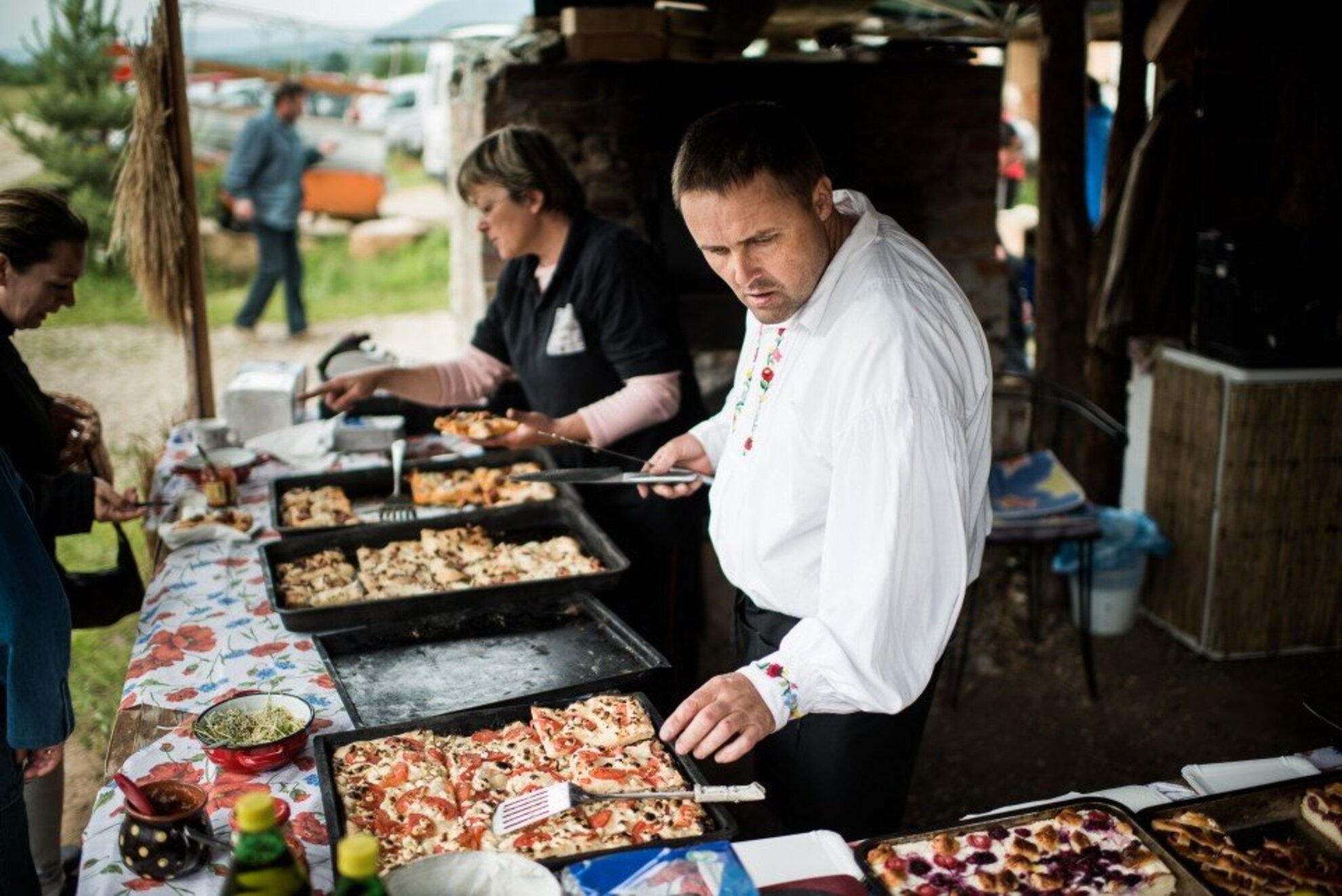
There is no market without a blacksmith.
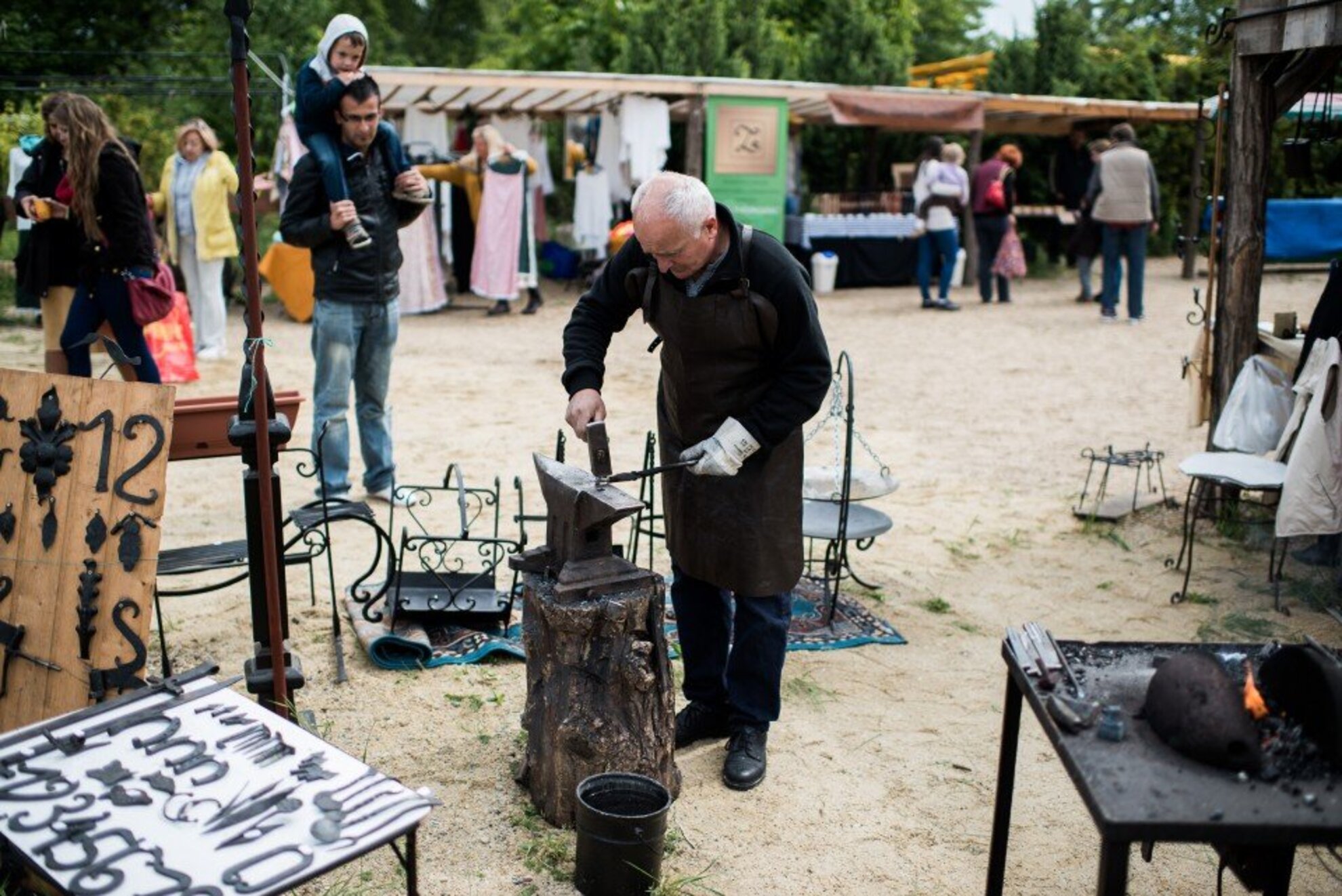
Lilomkert Market is situated on land originally classifified as plowland, thus it has often been in danger of being closed by the authorities.

Locals at the market. Liliomkert is quite popular among those who moved here, or just came here to relax from Budapest.
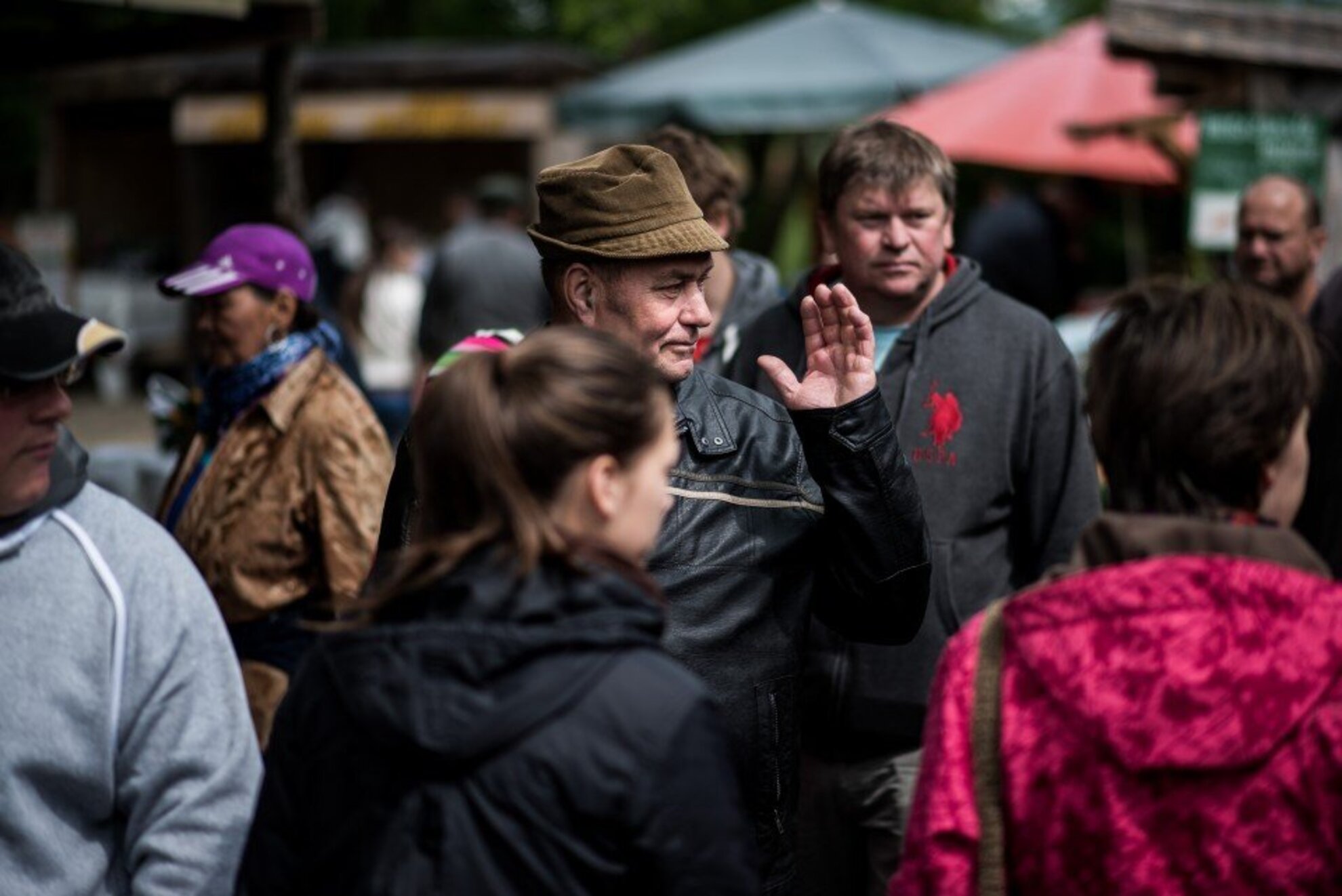
We're quite lucky today - says an experienced customer. They say that In fine weather people can hardly move the place is so packed, but since the photos were shot on a Sunday in the spring when it was about to start to rain, we had no problem with getting around.
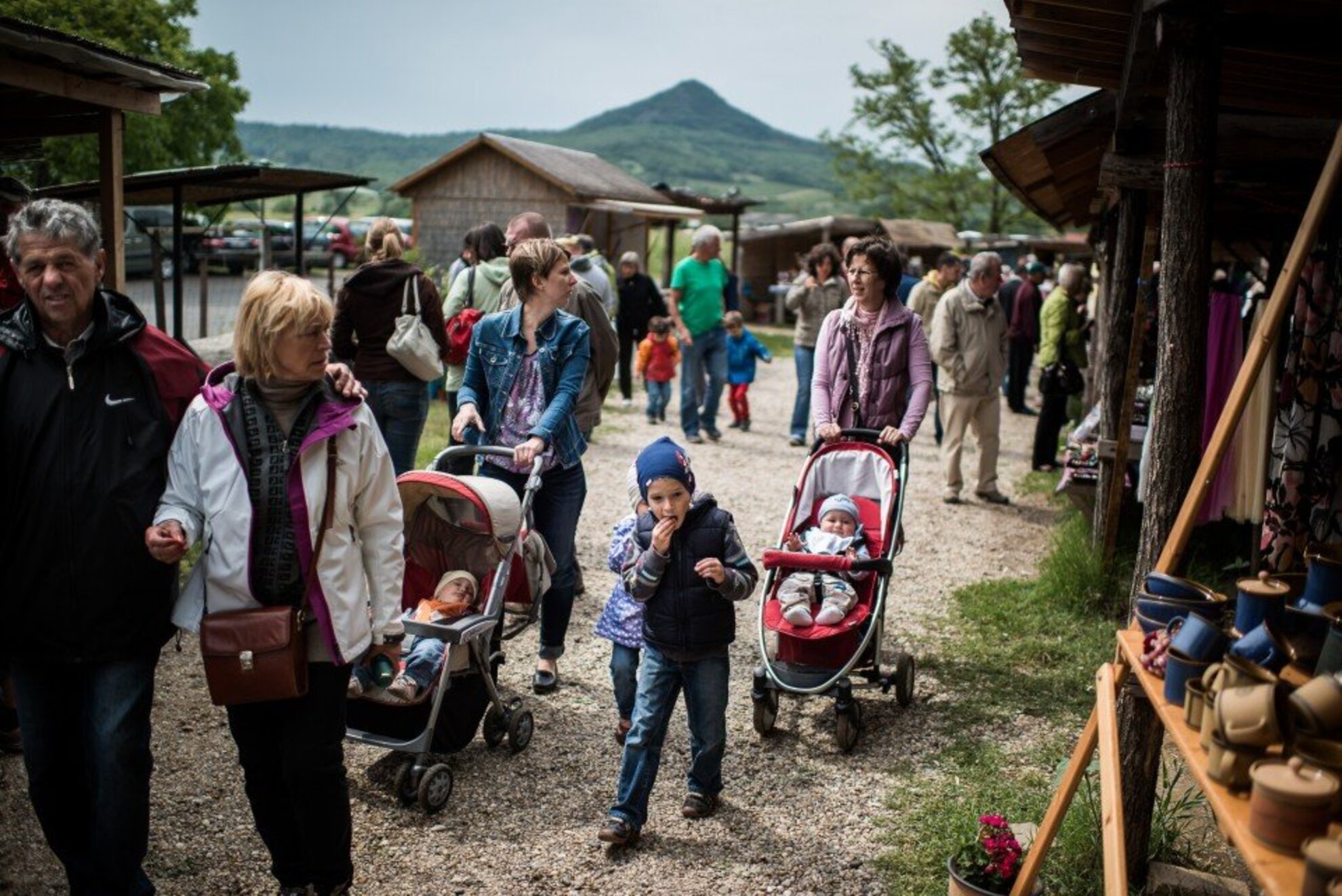
Borbála Schmidt is selling his father's potteries. The fireclay cooking and baking pots made at their gallery in Balatoncsicsó are their top sellers.

And if we're lacking power or reception, we have the opportunity to buy Orgonit-OM decorations from Gábor Csőr to protect our phones from the electric smog. It won't help our phone bills though.
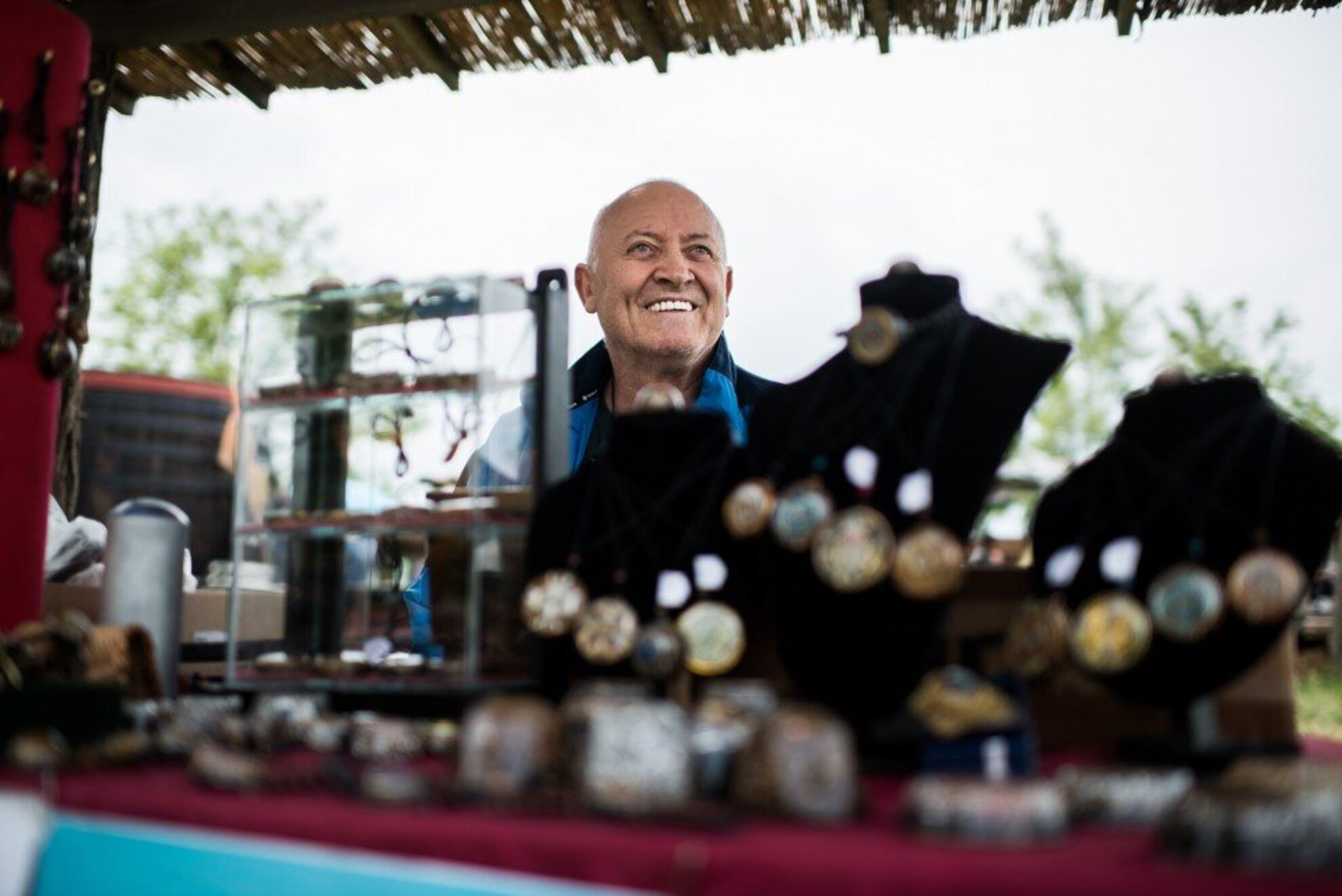
We're not the only first timers: Ági and her family have not been here before either, they popped over from their weekend in Csopak.
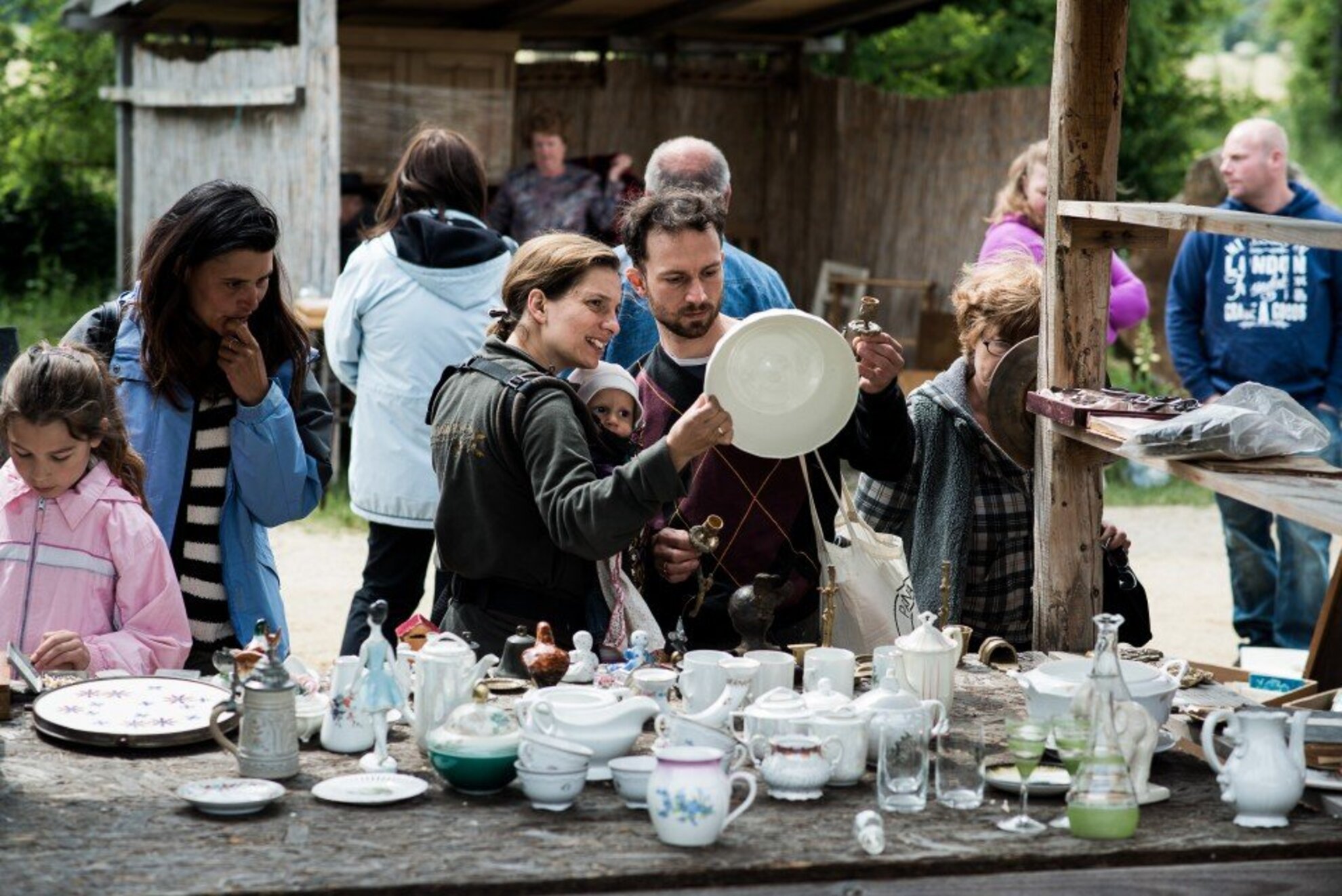
Huba Szeremley is well-known wine maker in Badacsony; it turned out his meat products are quite memorable as well. It's hard to get past the unique wine barrell without getting a bite of ham from Piroska, the gifted seller. If you tried the beef-mangalitza sausage, or the smoked mangalitza ham, you are hooked. You can't avoid purchasing a serious amount of meat which would be enough for a whole Atkins diet.
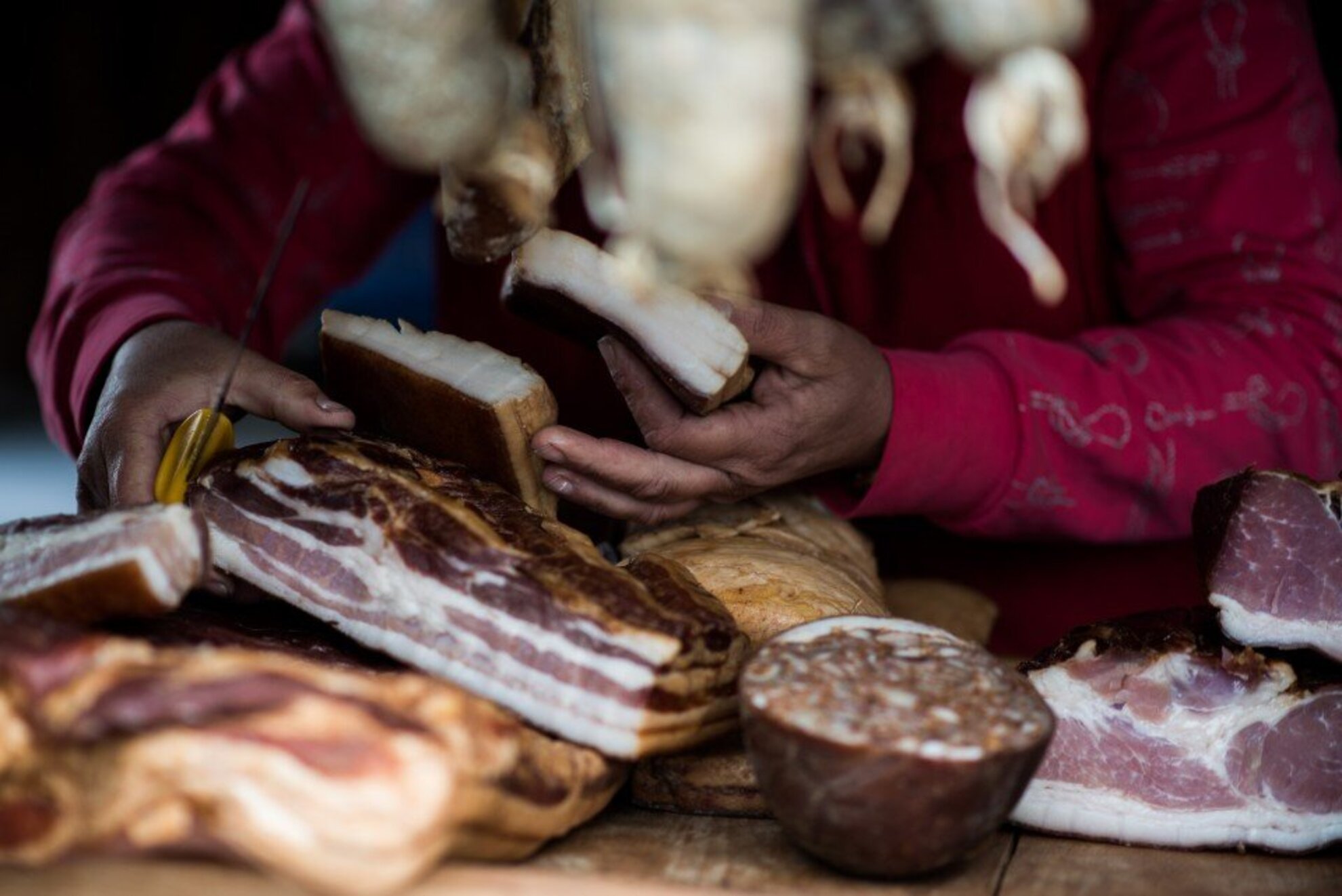
Balázs Szabó got up at 2 AM to make fresh bread from spelt and oat in his oven at Kővágóörs. He used to be a mechanic, but he started to make bread, because he couldn't find a bakery which put the right ingredients into the product - he says, while he offers a bite of freshly baked bread to everyone around him.
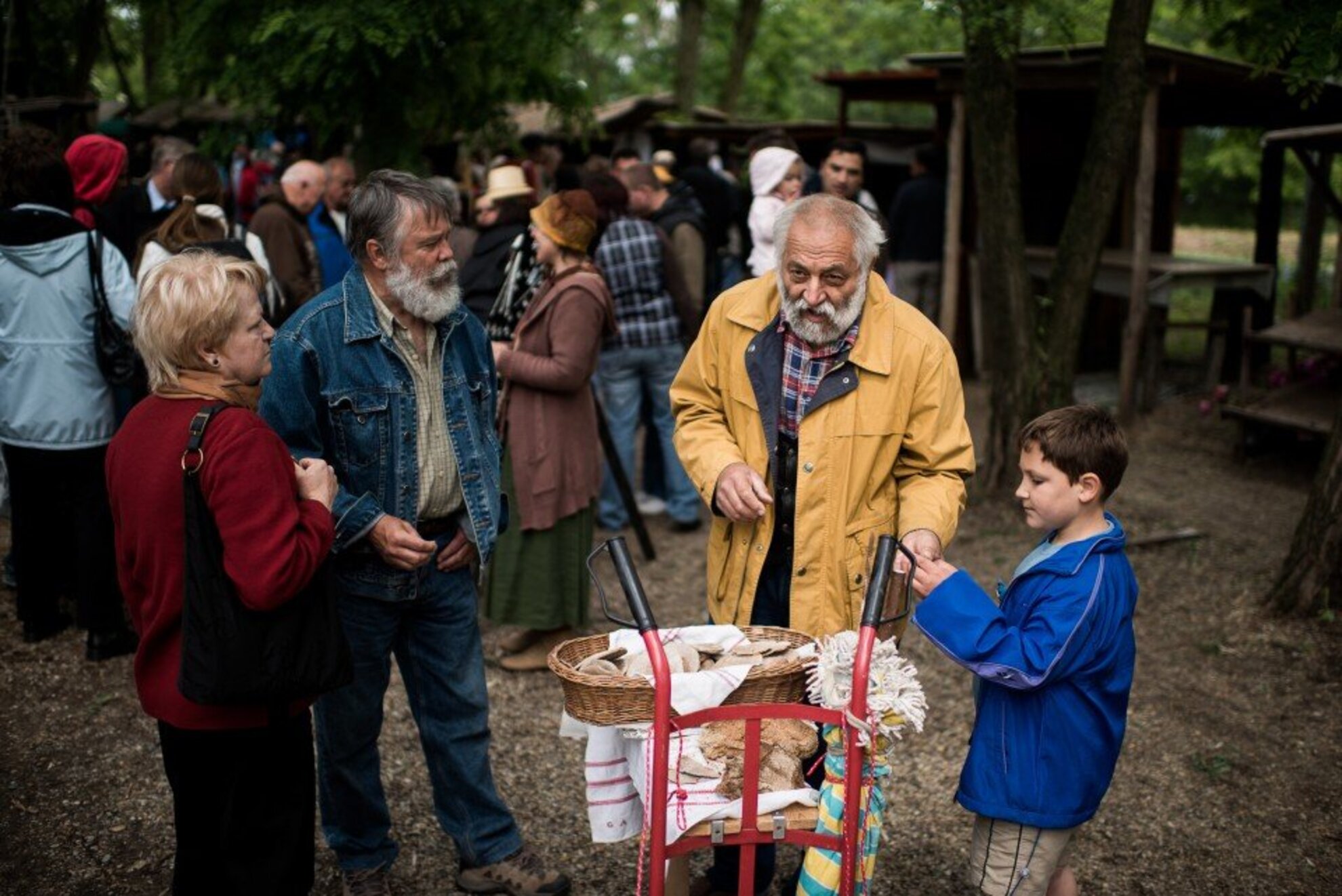
Orsolya Nagy is quite popular among those who are on vacation here, because of her pogácsa made from whole meal spelt flour. Pogácsa is a Hungarian salty pastry; its toppings can be almost everything from cheese to potato, or goat cheese.
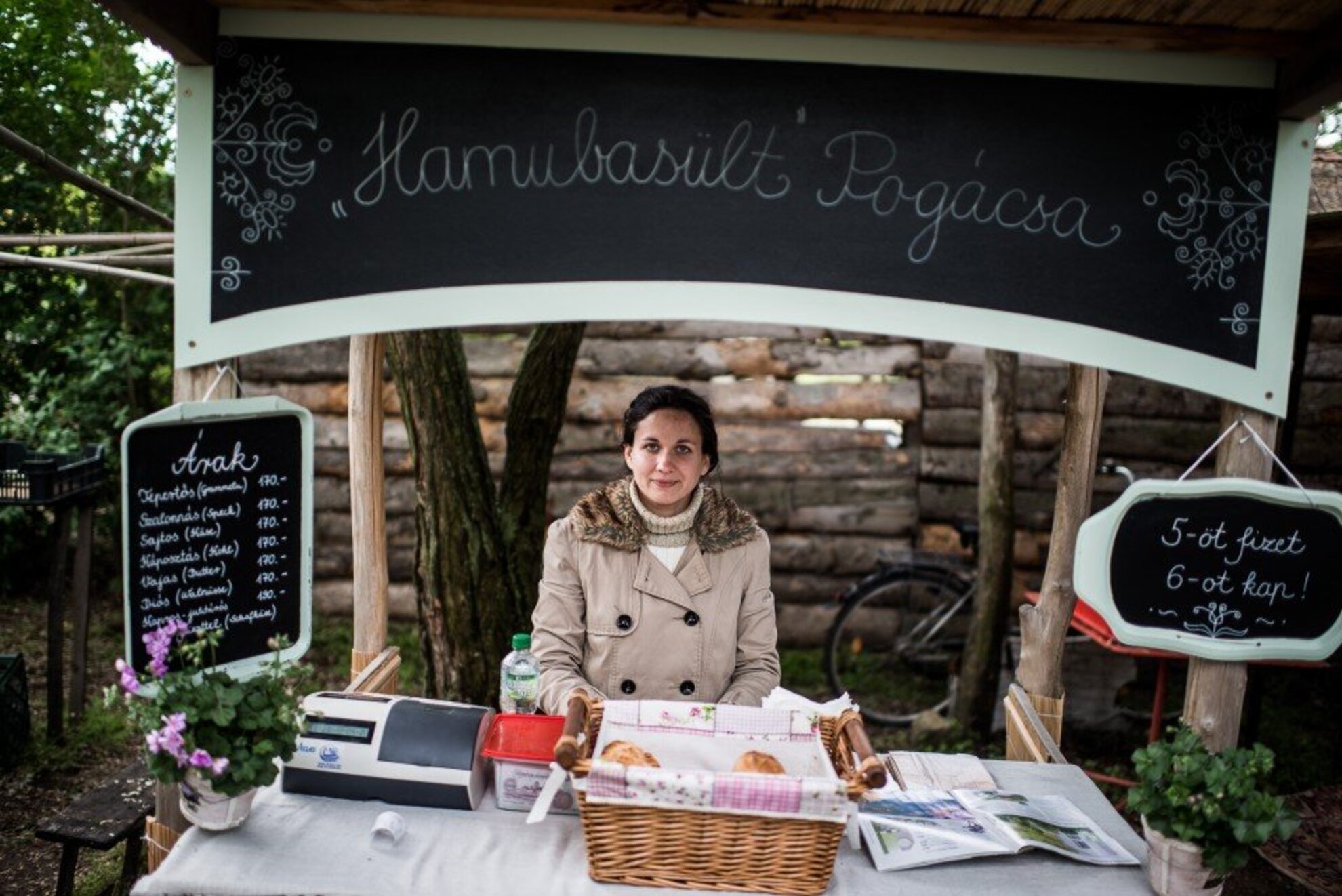
Éva Pandúr's child was born with iron deficiency, so they followed the doctor's advice and gave him a lot of goat milk. They bought a goat and soon enough they had a whole herd of them, so they started to make goat cheese as well. They became farmers, they've been here since the foundation of the market.
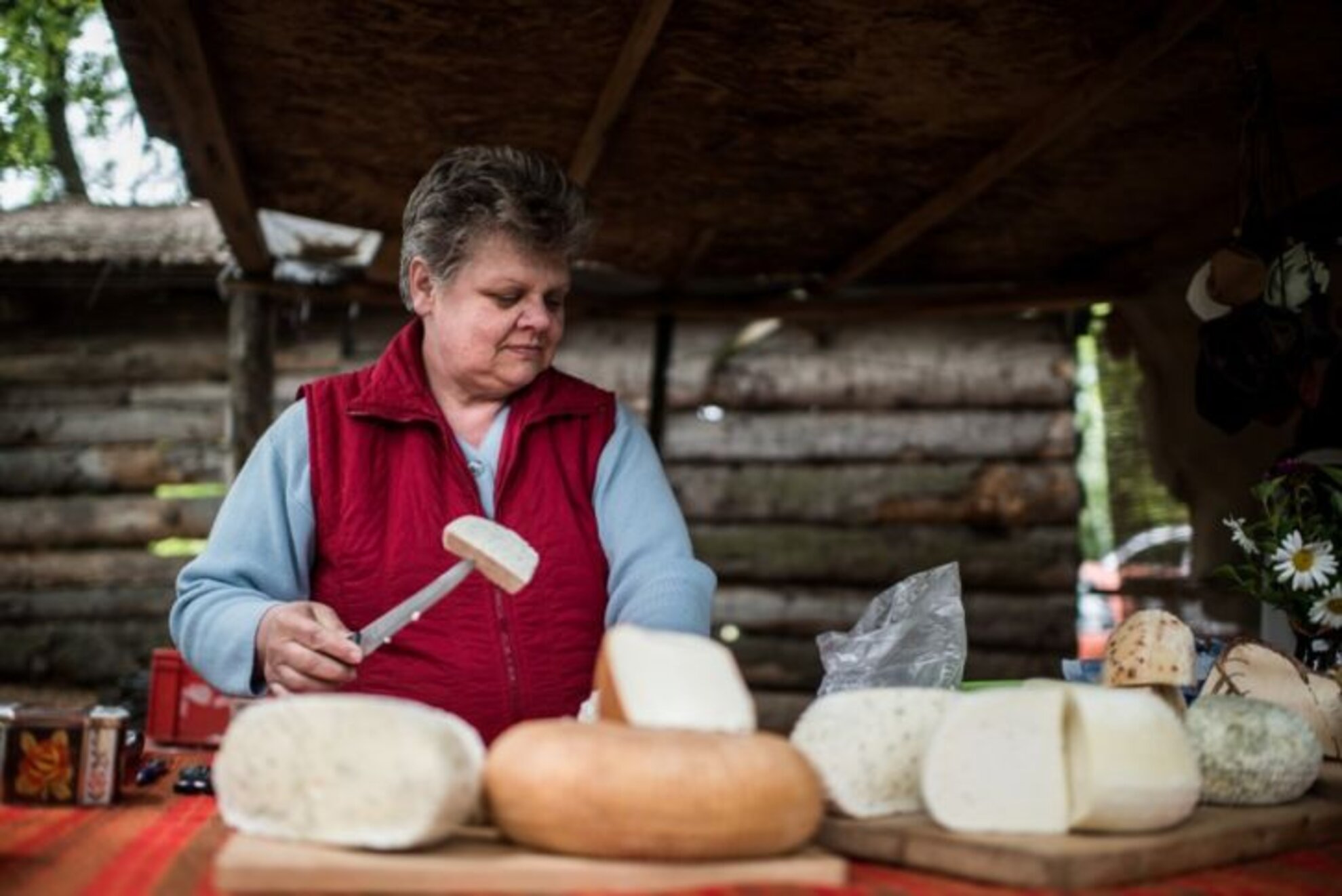
Baking the kürtöskalács (or chimney cake). This traditional Hungarian sweet can have various toppings like sugar, nuts, cinnamon, or coconut.
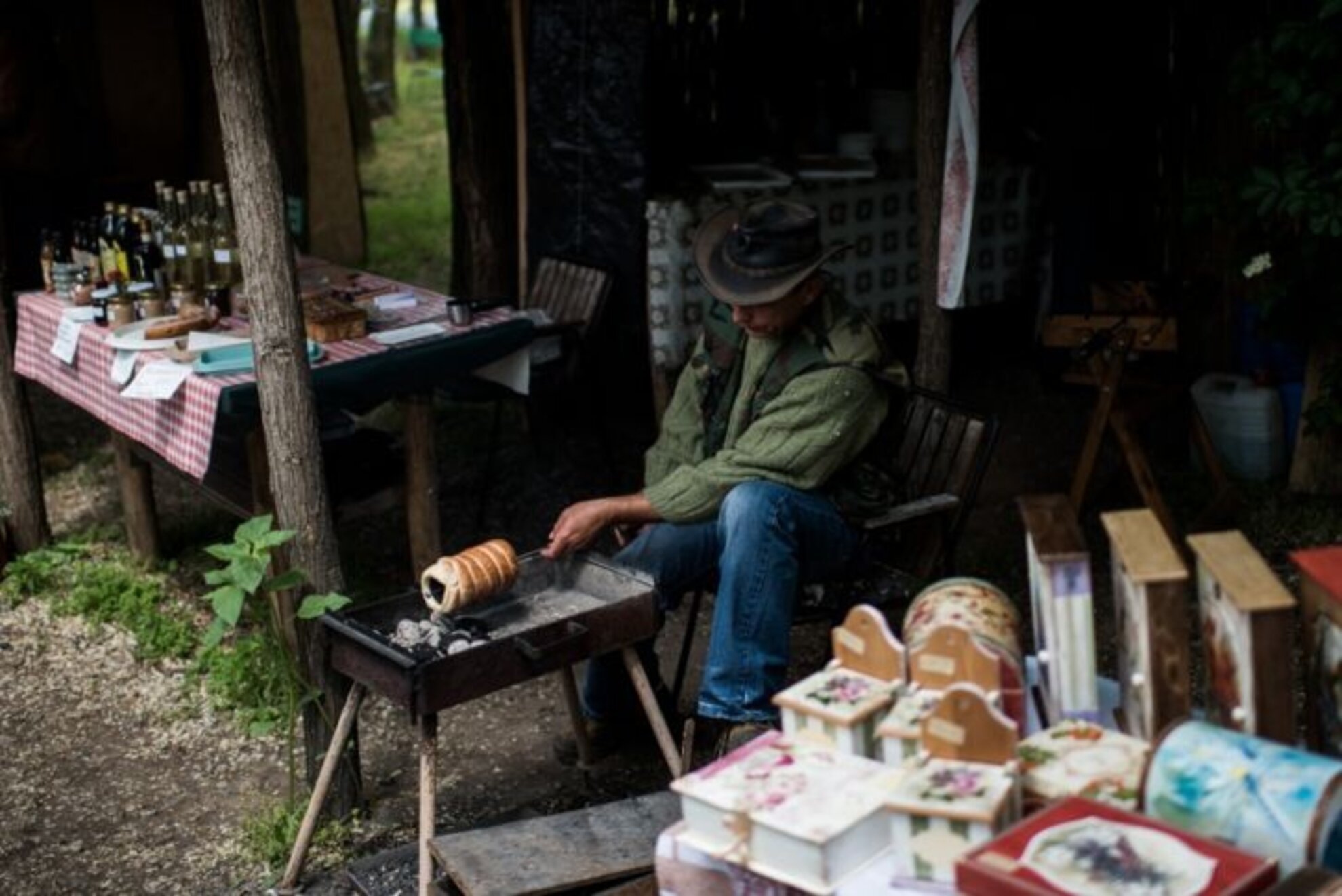
Time is valuable.
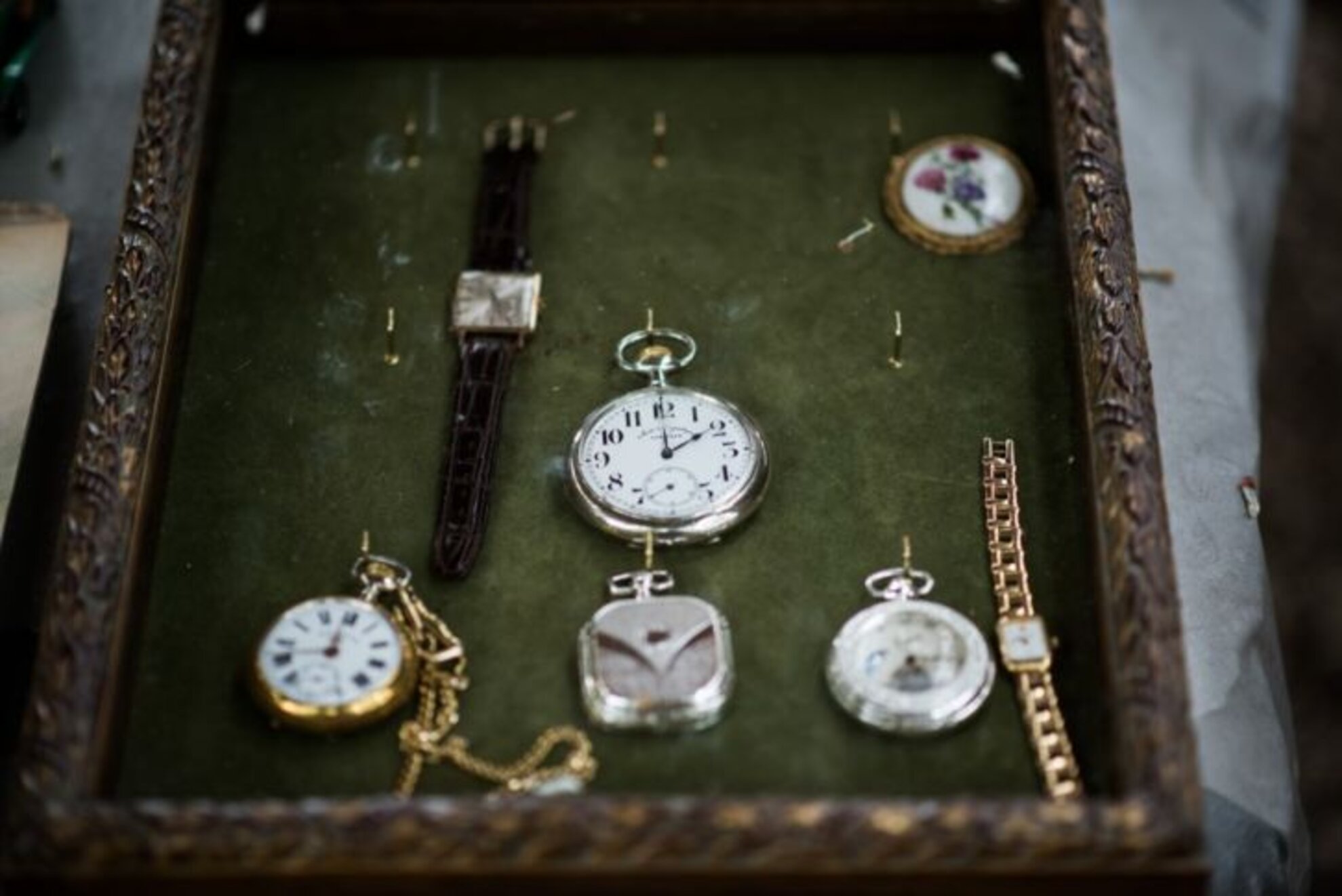
"I'm a Swabian kid from Tótvázsony," says Helmut Nenczl. "I returned to my roots from Rosenheim, Germany." He used to sell his fruit syrups and Bavarian meat bread at similar markets in Germany as well. What is the difference? In Germany customers just come to the market, buy the products then they leave. The Hungarians taste the products, ask a few questions, make a round to check out other stalls and come back to purchase only afterwards.
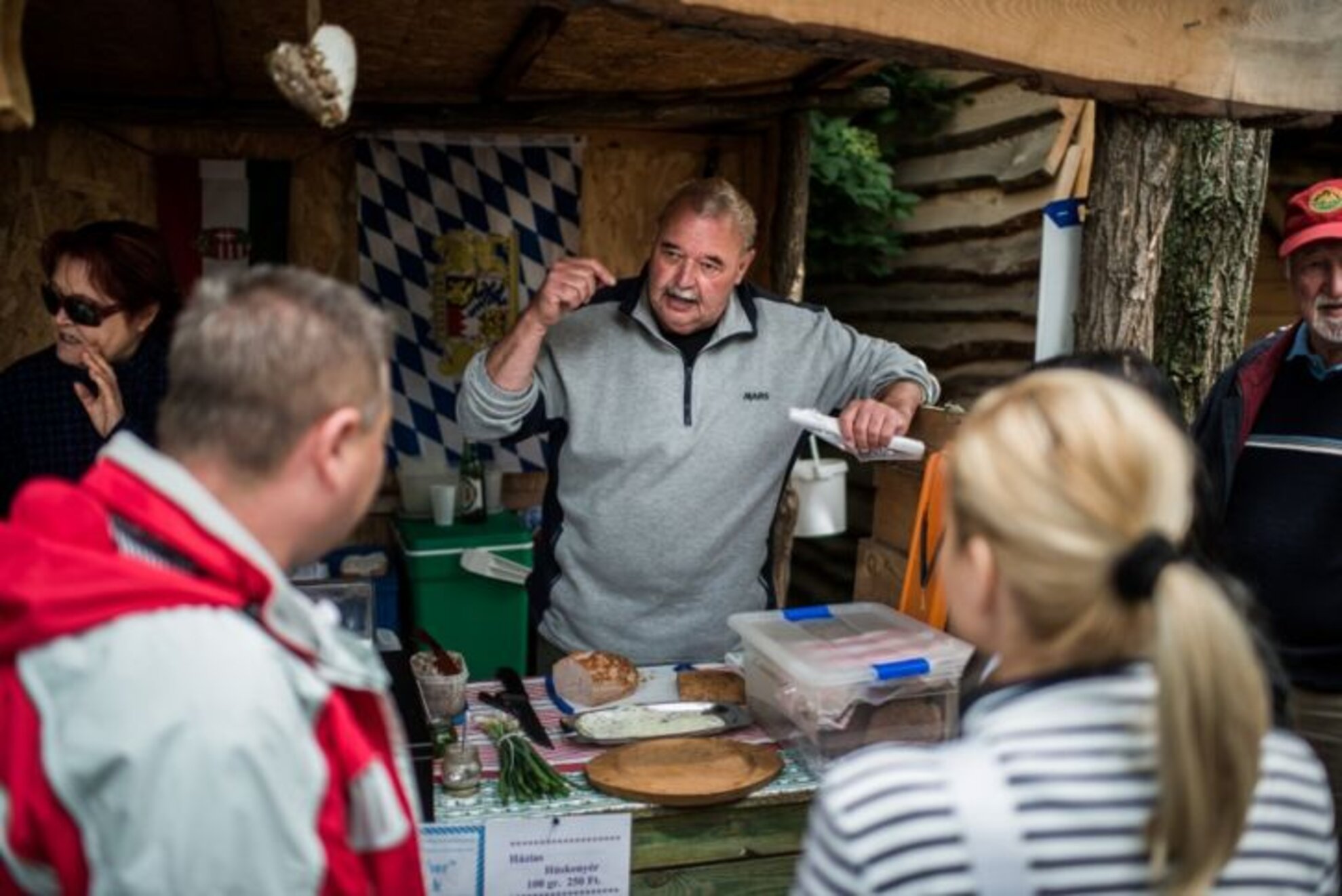
She fell in love with a house at Lake Balaton in 1995, then she met her husband and they moved here together - says Susanne Daucher. Her husband is a gardener and a chef. These two professions meet halfway in their jams, mustards and homemade chutney variations.
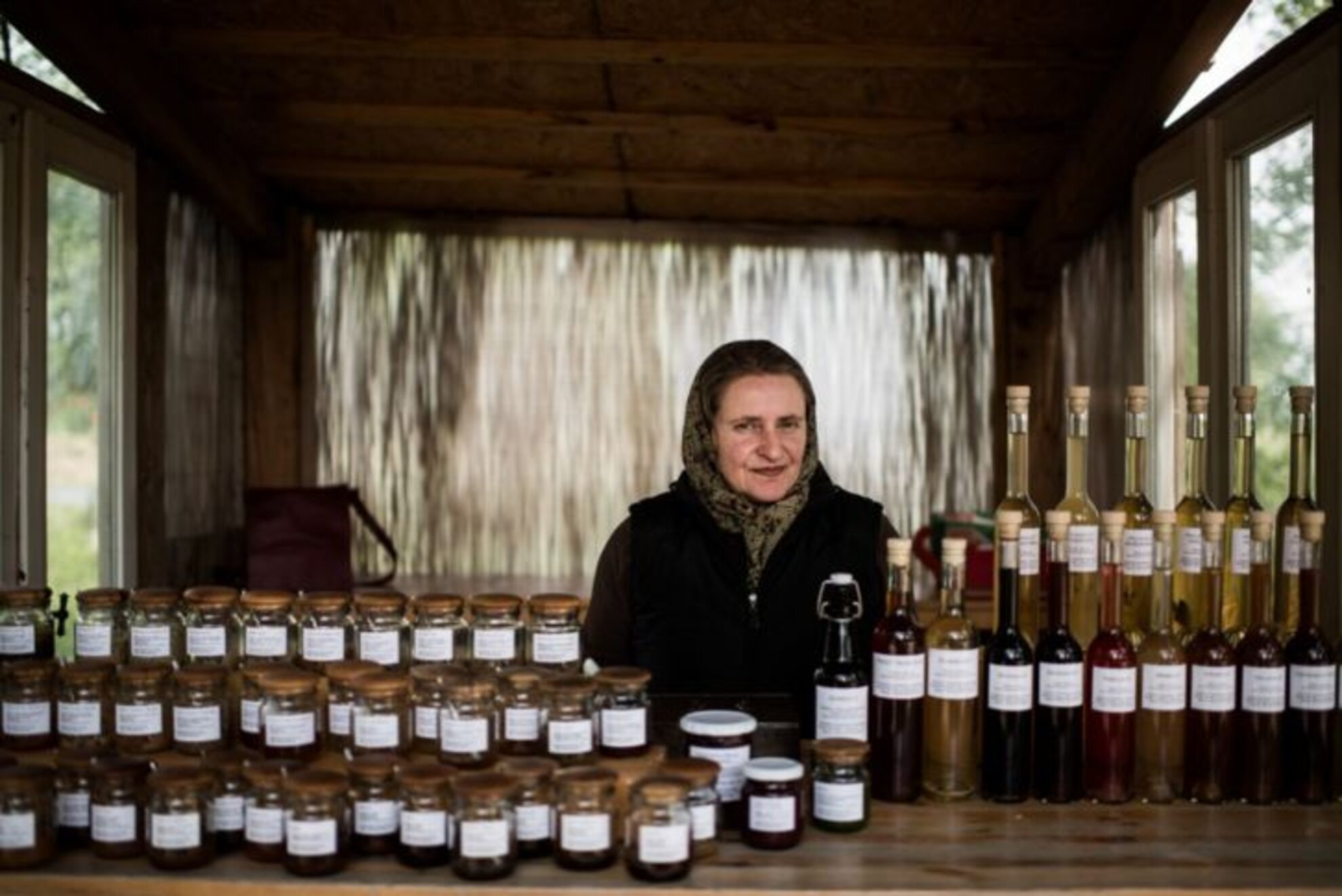
There is no market without Lacikonyha. The concept is to offer simple, traditional dishes at the marketplace, like soups, stuffed cabbage, and layered potato.
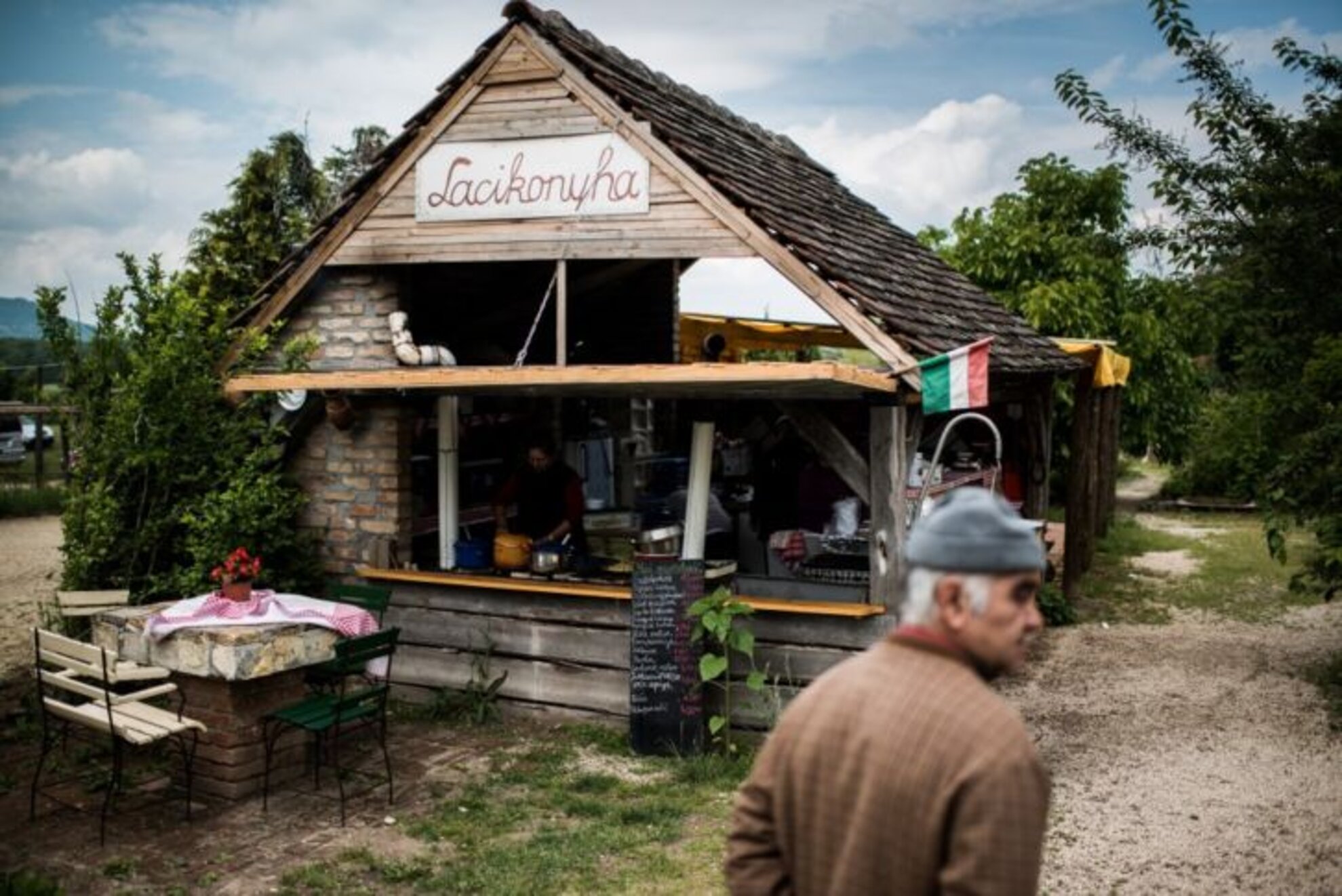
Lehel Rácz is offering Mannarax, which is made from sprouting wheat. He insists we should check out his bio house built from adobe bricks.
